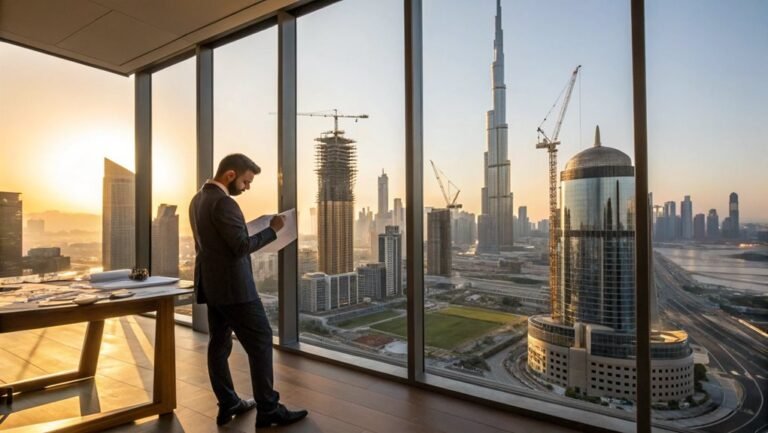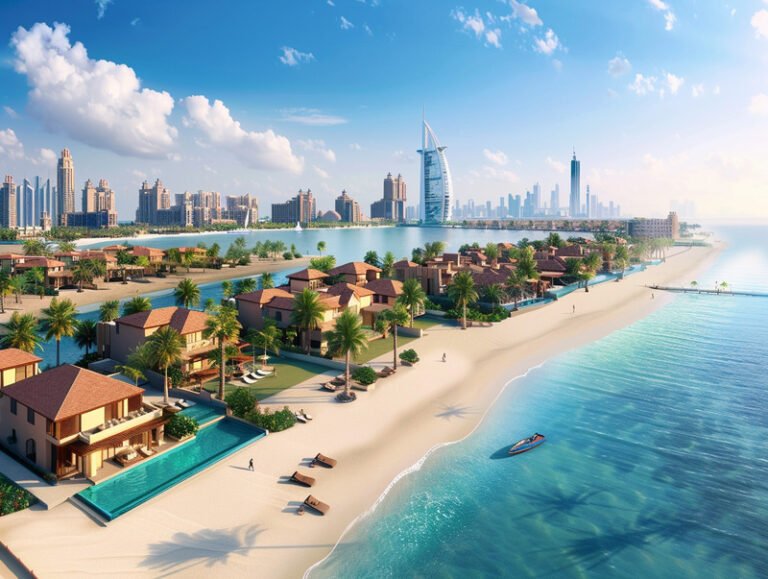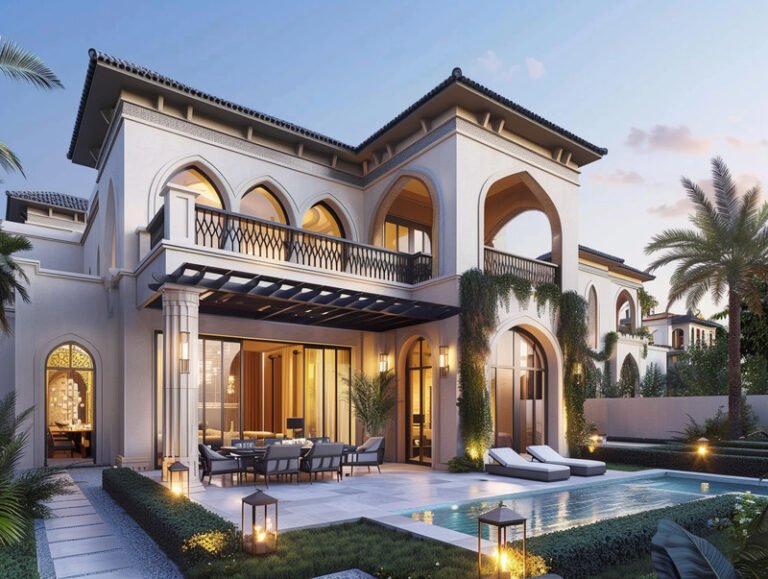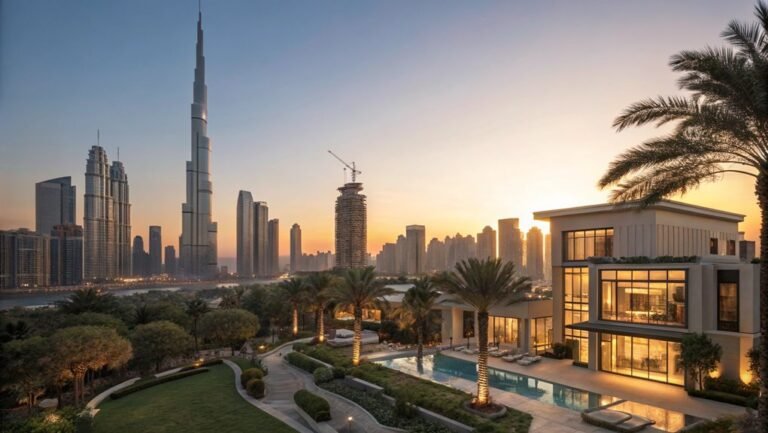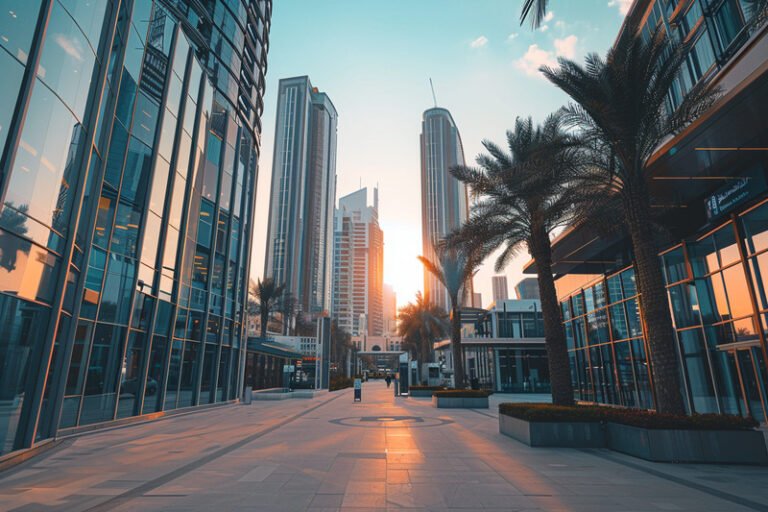Guide to Buying Off-Plan Properties in Dubai
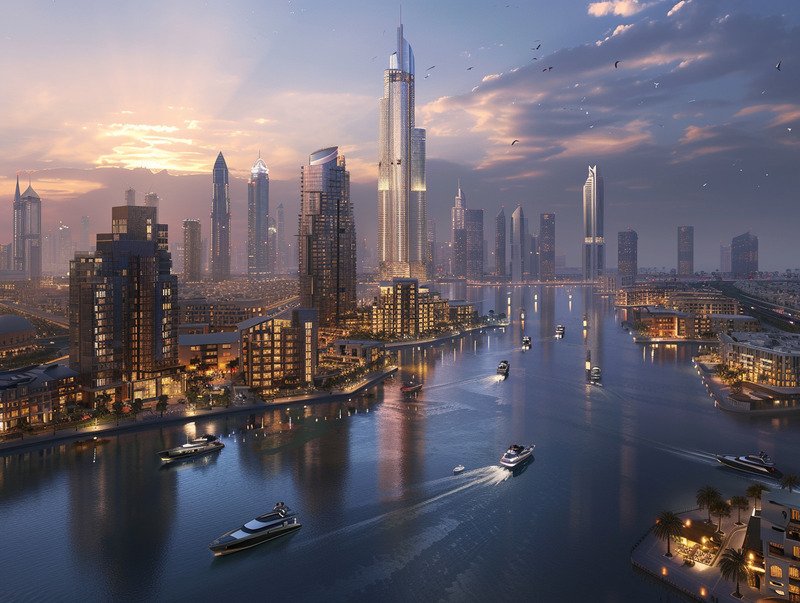
To buy off-plan property in Dubai, start by researching prime locations such as Dubai Marina or Business Bay. Evaluate developers’ credentials and assess market trends for potential value appreciation.
Next, verify the property’s freehold status and confirm the developer’s RERA registration. Ensure there is an escrow account in place for added security.
Finally, secure your purchase by making a 10-20% down payment and submitting the required documents, including your passport and Emirates ID. Remember to pay the DLD fees within 30 days to complete the process.
Key Takeaways
- Select a property and developer: verify RERA registration, review track record, and check project location in freehold areas.
- Submit required documents (passport and Emirates ID) and pay booking deposit to secure the property.
- Pay 10-20% down payment and DLD fees (4% + 1000 AED) within 30 days of booking.
- Sign Sales Purchase Agreement and ensure all payments go through the official project escrow account.
- Monitor construction progress and complete milestone payments according to the developer’s payment schedule.
Research and Select Properties and Developers

Selecting properties in Dubai’s off-plan market requires thorough research.
Let us help you find the perfect property. Contact us to get started.
Start by evaluating prime locations like Dubai Marina, Business Bay, and Dubai Harbour for their proximity to business districts and potential for capital appreciation. Assess upcoming infrastructure developments that might increase property values.
Examine developers’ credentials, ensuring they’re registered with DLD and RERA. Review their portfolios, financial stability, and past delivery timelines. Working with a qualified realtor can provide valuable insights into developer reputations and market dynamics.
For specific projects, evaluate amenities, floor plans, and construction quality. Consider attending property expos to access exclusive deals and direct interaction with developers. Seek distinctive features, such as premium facilities or innovative designs, for a competitive edge.
Also, consider current market trends and rental demand in your chosen area to maximize investment potential.
Review Legal Requirements
Once you’ve identified promising properties and developers, understanding Dubai’s legal framework is crucial.
Verify that the property is in a freehold area where non-UAE nationals can own property by checking the DLD’s approved freehold zones list.
Ensure the developer is registered with RERA and possesses all necessary permits, land ownership documents, and an escrow account.
Legal recourse options may be limited without a properly vetted sale contract. Developers can’t charge additional fees without DLD approval. Your sale must be registered in the Interim Real Estate Register within 60 days of the transaction; this is the developer’s responsibility.
Failure to register could invalidate your purchase, so monitor the process and maintain documentation of all approved fees and costs.
Complete Purchase Procedures

Dubai’s off-plan purchase process involves several steps:
- Make a booking deposit and sign a reservation form.
- Pay a 10-20% down payment of the property’s value. All transactions must be registered within 60 days of completion according to Dubai law.
| Action | Timing |
|---|---|
| Submit documents (passport, Emirates ID) | At booking |
| Pay booking deposit | Immediately |
| Pay DLD fees (4% + 1000 AED) | Within 30 days |
| Sign Sales Purchase Agreement | After booking |
| Complete milestone payments | As per schedule |
Ensure all payments are made through the project’s escrow account and monitor construction progress. Verify that property specifications match your SPA before the final handover, and promptly address any discrepancies with the developer.
Frequently Asked Questions
What Happens if the Developer Goes Bankrupt During Construction?
Your funds remain protected in escrow, and the DLD can transfer the project to another developer or refund your money. You’ll also have legal recourse through RERA for compensation.
Can I Sell My Off-Plan Property Before Project Completion?
You can sell your off-plan property before completion if you’ve paid 30-40% of the value, obtained a developer’s NOC, and registered with DLD through Oqood. Transfer fees apply.
Are There Special Tax Implications for Foreign Buyers of Off-Plan Properties?
You’ll face the same 4% tax rate as local buyers when purchasing off-plan property in Dubai. There’s no additional tax for foreign buyers, and you won’t pay capital gains tax either.
How Often Can I Visit the Construction Site During Development?
You can typically visit the construction site monthly through scheduled appointments with your developer. They’ll coordinate these visits, and you’ll need to follow safety protocols during inspections.
What Insurance Coverage Protects My Off-Plan Property Investment?
Your off-plan investment isn’t covered by traditional insurance, but it’s protected through escrow accounts that release funds only during specific construction milestones. You’ll need mortgage life insurance if you’re financing the purchase.
Conclusion
You’re now equipped to make an informed off-plan property investment in Dubai. By thoroughly researching developments and understanding the legal framework, you’ve minimized risks while maximizing potential returns.
Follow proper purchase procedures and work with licensed developers. Keep documentation organized and maintain clear communication with all parties involved.
Stay market-aware to navigate Dubai’s dynamic real estate landscape confidently.
Let us help you find the perfect property. Contact us to get started.

